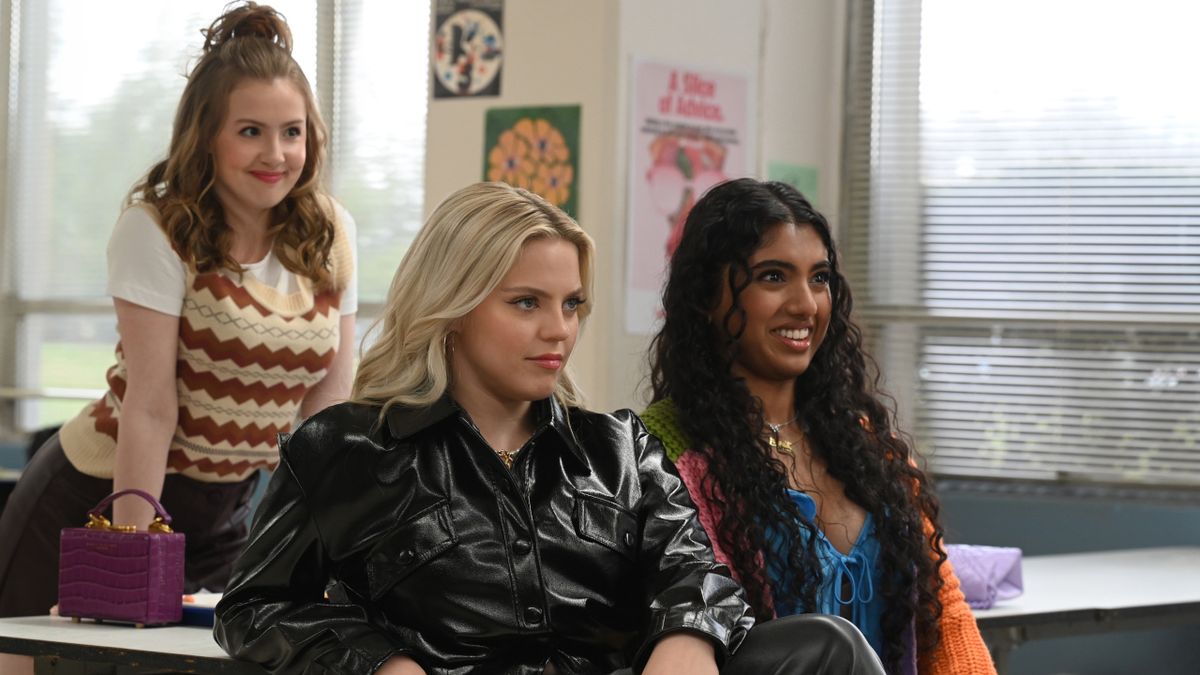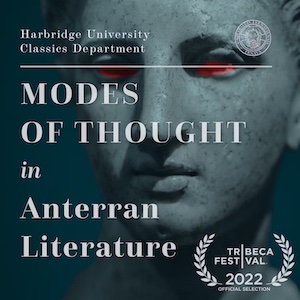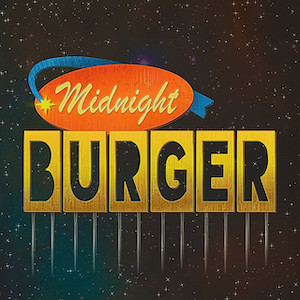For those of us who love literary fiction, we have the written word and we have the narrated audiobook. But what about fiction that bridges the gap between?
As a writer, I’m often thinking about new ways to tell stories. I’m also a podcaster, so I include audio in my thoughts. And as I considered a new project, I wanted to create something I’d found to be rare: literary fiction that only works in audio form.

My resulting show, Wyrd Woman, is one of just a few audio dramas in this niche. There are many excellent fiction podcasts out there, modern radio dramas that are often based in the genres of mystery, science fiction and more. But it takes a bit of work to find fiction podcasts that bring the lyrical writing, the conceptual nuance, and the complexity and satisfaction of literary fiction into audio drama form.
Wyrd Woman only works as an audio drama. The limited series features an isolated woman recording her dreams of strangers, women across time who become increasingly persistent and desperate through sound. Over nine nights, each woman—old, broken, unnatural, mad, and ugly—becomes a stronger voice and presence through audio production and sound design. And as these women come together, connecting across time and space as worlds die, reality becomes fantasy, past and future meld, and fate binds and beckons.
These seven podcasts also use audio and sound to create stories that are rich, compelling, utterly disquieting, and thoroughly enjoyable. Just like literary novels, these shows use different formats and structures, question the lines between reality and fiction, and push us to think and engage. Some are one-person shows, like mine. Some are slightly bigger. Some use full casts and extensive production. All can be your new favorite stories.
Modes of Thought in Anterran Literature by Alexander Kemp and Winnie Kemp
A renowned professor leads a class exploring the culture of a newly-discovered ancient civilization. The only issue: there is no proof of the discovery, or the civilization itself. Has the professor, who disappeared for some time before teaching this class, broken with reality? Or is there really a lost civilization with a rich literary history known only by a few? The show is structured as recordings of each lecture, with occasional interjections from confused or suspicious students and grad assistants. Each episode dives deep into a particular aspect of Anterran literature, with a slowly-advancing plot behind the story. Listeners get deeply erudite lectures on this world, so complete that we stop caring if Anterra is real— because what is real? This feels like a wild literary novel to which you must just submit. There are four short seasons, for a total of about 30 episodes so far.
Mabel by Becca De La Rosa and Maybell Marten
It starts relatively simple. Ana, a home health nurse, is taking care of a ninety-year-old woman in an old, isolated house. She calls the woman’s granddaughter, Mabel, to ask about some letters Ana has found. But Mabel doesn’t answer. Even as Ana keeps calling. Even as Ana leaves longer and longer messages, describing strange happenings and discoveries in and around the house. Even as Ana becomes increasingly desperate, and increasingly detached from the world. For the first few episodes, we think we’re witnessing an isolated woman’s descent. But then—we finally hear from Mabel. And things get so much weirder and darker. The show is thoughtful and beautiful, painting the picture of a gothic, fantastical place that may be very real. The use of music and sound is crucial to the story, with each installment ratcheting up the goosebumps and dread.
Beef and Dairy Network Podcast by Benjamin Partridge
This is brilliant, ferociously funny satire that’s just bonkers. The show purports to be the online news engine for the Beef and Dairy Network in the UK. In each episode the host talks to a supposed expert in the field, with an interview that goes delightfully off the rails. One episode features a cow wrangler on film sets that contends all major acting is actually done by cows; another includes a former child actress from yoghurt commercials who claims trauma from standing in butter too long; another is a recurring character of a slaughterhouse owner who believes safety guidelines are rubbish, because his employees learn their safety lessons by losing fingers and hands. Each episode skewers the corporate culture behind food, along with the painfully cheerful marketing rah-rah energy demanded by companies today. I don’t know if the creator is vegan like me, but it feels right to say he is.

Gone by Sunny Moraine
A woman wakes one morning to find her wife gone, along with all her neighbors. The light and the air feels different. The power starts blinking in and out. She’s cut off from the world, if it still exists. And soon even the sun starts to disappear. She records her experience, and her changes—because as much as she fears for and misses her wife, her anger grows. Why did her wife keep so many secrets? Why did she work such long hours at her research lab? What exactly did she do? And who are the voices and shadows that start to people the narrator’s world? Beyond the fearful concept, the show really drills down into relationships—how we cede ourselves, how we diminish one another. It’s an exploration of our needs for companionship, for safety, for light.
Silt Verses by John Ware and Muna Hussen
Carpenter and Faulkner are two apostles of an outlawed religion, one that offers sacrifices to their river god. In this world, there are accepted religions and gods—those of commerce, of coffee, of the electric company. And there is illegal worship—those deep rural gods of the poor, displaced by rising waters and religious wars, gods of dirt and land and water. The two apostles are traveling their river to suss out other devotees, and to look for miracles. In their journey they find other dangerous gods (and their even more dangerous acolytes), an investigator looking into illegal deaths for rural religions, and a refugee fleeing her corporate job, which just sacrificed non-performers to their new deity.
The episodes are structured with lyrical narration and violent dialogue, with different characters taking the lead. It’s a remarkably dark, rich, fascinating and weird story with exceptional writing and acting. Note: there are many intense elements of horror.
Midnight Burger by Joe Fisher and Finlay Stevenson
Gloria opened her dream restaurant in Phoenix just before the pandemic. That restaurant failed. So one day she answers an ad for a job at a diner called Midnight Burger. Except this diner is just visiting Phoenix —at the end of the shift, it will travel again, across time, across dimensions, across space.
Gloria joins a bizarre team at the diner, including a couple of old-timey pastors on a radio, a former smuggler who can always MacGuyer a problem’s solution, a physicist who just wants to drink and write in her booth, and a guy named Caspar who’s just… there? And each time they stop, there’s something weird going on, and someone who probably needs help. Trust me—that description barely covers the surface of this show. It is wild, with a fantastic concept, lines that make me cry from laughing, and amazingly deep philosophical and empathetic discussions of humanity. Over their three seasons and 50 episodes so far, the writers create wonderfully rich story lines, hilarious villains (like a space species of capitalists called the Teds), and characters that have me beyond invested.
Tanis by Nic Silver and Terry Miles
All of these shows are hard to describe, but this one may be the hardest. Nic is the host of a podcast, a docudrama called Tanis. He is exploring a concept (or place? or person?) called Tanis—chasing it through the historical circles and myths of Alastair Crowley, the pages of a science fiction magazine and a never-published manuscript, the buried classifieds of Craigslist, the hoarded cassette recordings of numbers stations, the conspiracies around the deaths of Eliot Smith and Kurt Cobain, and so much more. Along the way, Nic relies increasingly on a secretive deep web expert named Meercatnip, and a growing list of people who alternately encourage and warn him from his quest. We want to believe in conspiracy and mystery, Nic says, especially in this age of instant info that masquerades as the answers to everything. Tanis, he believes, may be the ultimate and only remaining internet mystery.
Each episode nails the format of a investigative series, one which threatens to fall apart under the weight of all the threads being pulled. Nic himself plays a version of a reporter and enthusiast who may be in over his head. But just as he says—we are fascinated by mystery, and may not really care how everything fits together. The search is all.













